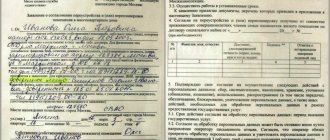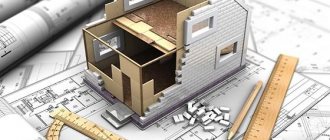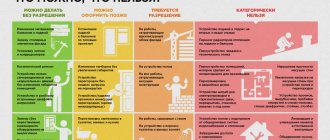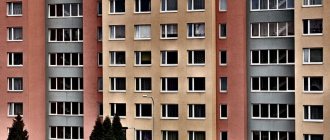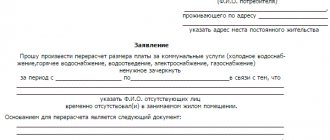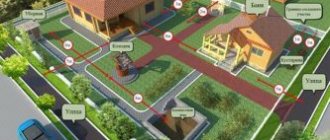What is illegal redevelopment from a legal point of view?
Illegal redevelopment is a change in the structure of the premises, which was carried out without the approval of government authorities. The consent of housing authorities is required to ensure that the new apartment project does not violate GOST and other standards.
Responsibility for illegal changes lies solely with the owners of the living space. Although violations can come not only from the owners, but also from tenants living in the premises under a lease or social tenancy agreement.
Types of prohibited work
Not all changes in the structure of living space fall under prohibited types of redevelopment. These include the following:
- Work that resulted in a deterioration in the operating conditions of the house and people’s residence.
- Conversion of residential real estate into non-residential real estate.
- Changes that resulted in damage to the strength and stability of the main structures of the house.
- Removing or shortening ventilation ducts.
- Changes that entail an increase in load on supporting structures.
- Moving heating equipment to the territory of balconies or loggias.
- Installation of a balcony or loggia.
These are the main types of work that must be agreed upon with housing authorities.
Without permission, owners have the right to rearrange household appliances and make repairs, but only so that this does not affect engineering structures. For example, you can carry out cosmetic repairs, replace outdated plumbing fixtures, reinstall window systems and doors.
How is the fact of illegal redevelopment established?
Government agencies will not go door to door and check for illegal redevelopment. This is revealed by completely different methods. These include the following:
- Message from neighbors. It happens that residents living nearby simply declare that repairs are being carried out to identify the violator, and it happens that the redevelopment of the residential premises affects their interests.
- Statement from institutions whose competence includes monitoring the safety of living in apartment buildings. They must report if circumstances are discovered that violate the order.
- Other sources. These can be anonymous appeals, messages from a local police officer.
Upon receipt of information about the legality of redevelopment of an apartment, the inspector is obliged to conduct an inspection by visiting the property in person. If it is discovered that major changes were made without permission, a government agency employee will issue a fine on the spot. He also issues an order obliging the owner to approve the work performed.
What is the fine for illegal redevelopment for individuals and legal entities?
In case of illegal redevelopment, the owner bears administrative responsibility and is punished by a monetary penalty. If, as a result of the work, the rights of other residents were violated, then the consequences may be more serious - even criminal liability.
Within the limits of administrative liability, when no harm is caused to other persons, the fine for illegal redevelopment of an apartment is as follows:
- Individuals - 2-2.5 thousand rubles.
- Legal entities – 40-50 thousand rubles.
- Officials - 4-5 thousand rubles.
If damage was caused to other citizens during the work, the amount of the monetary penalty increases. The exact amount depends on the degree of harm caused.
The fine amounts for illegal redevelopment of an apartment may be as follows:
- Citizens - up to 5 thousand rubles.
- Organizations – up to 300 thousand rubles.
- Officials - up to 50 thousand rubles.
If the harm was caused to third parties intentionally, then the punishment may be more serious than the recovery of money.
Fine for illegal redevelopment of non-residential premises 2020.
All the information described above is also relevant for non-residential premises located in residential buildings. The only difference is the fact that the fine for redevelopment of non-residential premises without permission for the legal entity that owns the premises will, in accordance with the same paragraph 9.12 of the Code of Administrative Offenses of the City of Moscow, amount to 300-350,000 rubles, and this is already a significant amount. And it will not be possible to avoid this fine.
In times of crisis, housing inspectors received special instructions to collect such fines as much as possible for illegal redevelopment. Below we have given an example of a resolution imposing an administrative penalty for non-residential premises. We also recommend that you read articles about coordinating the redevelopment of non-residential premises and how to legalize the redevelopment of non-residential premises.
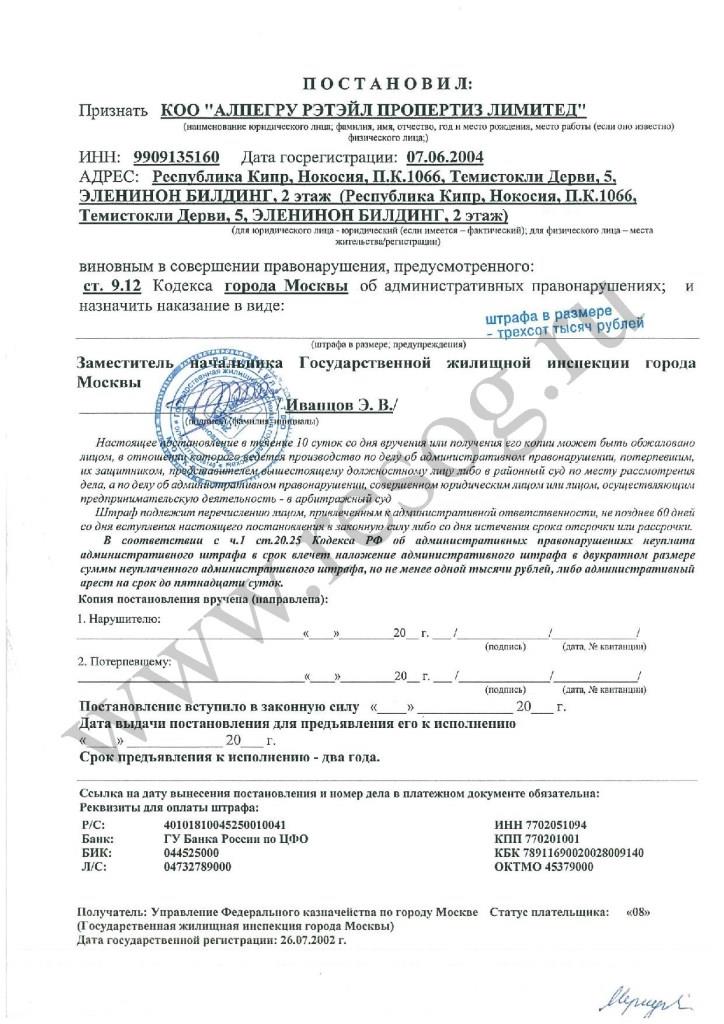
I hope our article was able to answer your question “how much is the fine for remodeling an apartment or non-residential premises?”
What happens if you don't pay
The owner is obliged to pay the established fine for illegal redevelopment, so evasion is fraught with consequences. If the obligation to repay the foreclosure is not fulfilled, the Housing Inspectorate has the right to file a claim in court. If the court decision is also ignored, the owner has a high risk of losing the residential premises due to its sale at auction.
The funds received from the sale of the apartment are used to pay off fines and other expenses. The remainder is returned to the debtor.
If a citizen is not the owner of the home, but simply rents it under a social tenancy agreement, then the consequences of illegal redevelopment of the apartment will be less serious. Government officials can terminate the agreement and evict the tenant. No payments will be required from him.
What law establishes liability for illegal redevelopment
If there are special standards for residential premises in Art.
7.21 (for citizens) and 7.22 (for management companies of apartment buildings) of the Code of Administrative Offenses of the Russian Federation, concerning liability for illegal redevelopment, for non-residential residents the Federal Code does not directly establish fines for illegal redevelopment of non-residential premises. However, the required norms contain some laws in the regions. For example, Art. 9.12 of the Moscow City Code on Administrative Offenses provides for penalties of the following amounts as a measure of liability for illegal redevelopment of non-residential premises:
- for citizens - from 2 to 2.5 thousand rubles;
- officials (chief engineer, director) - from 5 to 50 thousand rubles;
- firms - from 300 to 350 thousand rubles.
Code of the Volgograd Region on Administrative Offenses in Art. 5.5 and 5.10 establishes liability for unauthorized redevelopment of non-residential property located in municipal or regional ownership. The fines in this case are:
- for citizens - from 2 to 3 thousand rubles;
- officials - from 5 to 10 thousand rubles;
- firms - from 20 to 30 thousand rubles.
In the Samara region st. 3.3 of the local Administrative Code established fines for illegal redevelopment of non-residential premises in apartment buildings:
- for citizens - from 2 to 3 thousand rubles;
- officials - from 3 to 5 thousand rubles;
- firms - from 20 to 30 thousand rubles.
However, not all regions have established similar penalties. For example, the codes on administrative offenses of the Novosibirsk region, the Yamalo-Nenets Autonomous Okrug, the Khanty-Mansiysk Autonomous Okrug - Ugra and the Khabarovsk Territory do not contain such norms.
Legalization of redevelopment
The procedure for legalizing redevelopment in an apartment is quite simple, but will require the collection of documents and time expenditure.
Where to contact

You need to contact the Housing Inspectorate and BTI. BTI creates a new residential project, which reflects all the changes made. An employee of the organization himself comes to the owner and draws up a document.
After receiving the project, you can go to the housing authority, which will make a decision. If the institution approves the redevelopment, the property owner will be issued a new cadastral passport. You will need to contact the Rosreestr office to make changes.
If the Housing Inspectorate refuses legalization, the owner has the right to file a claim in court to challenge the decision of the state body. In this case, you should take part in all meetings.
A positive decision from government agencies will be made if the new layout of the living space does not violate the provisions of the law, namely:
- does not worsen the living conditions of other residents;
- does not entail changes in the operating conditions of the house;
- maintains general access to engineering systems;
- does not interfere with the suitability of the premises for living;
- does not lead to deterioration of the strength and stability of load-bearing structures.
In other cases, the decision of the housing inspection or judicial authority will be negative.
What documents will be needed
In order to make changes to an apartment legal, you do not need to collect a large number of documents. You only need the following:
- Papers establishing the owner's right to a real estate property.
- Technical passport taken from the BTI.
- Technical plan.
IMPORTANT! It is also necessary to obtain written consent from all co-owners of the property and persons living there to carry out the redevelopment.
To legitimize planning changes in court, more paperwork will be required. The documentation package includes the following:
- Negative decision of the housing authority.
- Technical passport of the real estate.
- Papers establishing the owner's right to the apartment.
- A receipt confirming payment of the state fee.
- New room project.
You can also provide additional documents that will be useful to confirm the owner’s requirements.
Time frame for consideration of the case
A decision is made within 1.5 months. After which, no later than 3 days, the government agency notifies the applicant about the results. The court makes a decision directly in the courtroom.
Expenses
When legalizing the redevelopment of residential or non-residential premises, the owner will have to incur some expenses. First of all, they consist of paying off a fine. In addition to this, expenses may be as follows:
- Obtaining a new technical passport – from 500 rubles.
- Ordering a new cadastral document – from 1000 rubles.
- Obtaining permission from various authorities – from 500 rubles.
- Obtaining a new certificate of ownership – 1000 rubles.
- Filing a claim in court – 1000 rubles.
If citizens wish to use the services of a lawyer, they will need to spend money on them as well.
What to do if you bought a home with unauthorized reconstruction?
It happens that an apartment is sold already with redevelopment. However, there is no permission to carry it out. But the new owner is not obliged to pay a fine.
According to the laws of the Russian Federation, the sale of such property is not considered a way of transferring responsibility to another person.
You still have to get permission. There are 2 ways: through appealing to extrajudicial authorities and through the court.
Find out what redevelopment can be done without permission. Is it worth buying an apartment with illegal redevelopment? Information here.
How to legalize redevelopment through the court? Details in this article.
If you contact the housing inspectorate, you must provide all the documents (listed above). A commission will be assembled to check compliance with the standards.
If everything is safe, the permit will be issued. Otherwise, the redevelopment will have to be eliminated.
The judicial method is to file a claim. It requires either recognizing the redevelopment as legal, or appealing the commission’s decision.
Features of buying and selling an apartment with illegal redevelopment
If the owner wants to sell an apartment, the layout of which has been changed without the approval of a government agency, then he can do so. You just have to negotiate with the buyer and be sure to warn him about the presence of illegal changes. After all, it will be he who will be obliged to legitimize the redevelopment after purchasing the property.
There is also a risk for the buyer when purchasing an apartment with illegal redevelopment, associated with the discovery of the fact that work was carried out without the approval of government agencies. In this case, he will already have to pay a fine for the former owner, who did not bother to approve the changes. Therefore, the buyer will think a hundred times whether it is worth buying real estate.
Responsibility for illegal redevelopment of an apartment
For the owner, illegal redevelopment leads to difficulties, if necessary, to carry out any legal operation with the changed living space. If an apartment in which the premises have been expanded or changed places needs to be sold, transferred to an heir or exchanged, then previously made changes to the layout of the apartment will become an obstacle, since the transaction cannot be registered by the authority without a new plan from the BTI, which reflects the real layout.
3 ways to get a free legal consultation 01
online free
02
Call toll-free line 8 (Moscow and regions of the Russian Federation)
03
Leave a request to our lawyer in the online chat, he will call you back in 5 minutes
Free consultation with a lawyer on housing disputes Prices for lawyer services on housing disputes
Responsibility for illegal redevelopment rests with the owner of the apartment. Before carrying out any transaction, he will have to pay a fine for illegal redevelopment; solving this problem will take a lot of time, due to which the owner will lose profitable offers and funds.
Peculiarities of buying and selling an apartment with illegal redevelopment on a mortgage
Buying an apartment with illegal redevelopment through a mortgage is a very difficult task. During the decision-making process, the banking institution carefully checks the property. If illegal changes are detected in the premises, it will refuse to issue funds. It is quite rare to obtain consent.
Therefore, the seller must first legitimize the changes or bring the living space to its original form, and then only sell.
It is worth mentioning separately about the possibility of redevelopment of an apartment that has already been taken out on a mortgage. Banking organizations try to protect themselves as much as possible from unnecessary risks, so the borrower is unlikely to find in the mortgage agreement an indication of the possibility of making changes to the configuration of the property.
If the borrower violates the terms of the agreement with the bank and carries out redevelopment, the consequences can be serious. The potential owner may lose their home.
ATTENTION! A bank employee has the right to visit the mortgaged apartment at any time and check its condition. The premises must fully correspond to the original condition or at least not worsen it. Otherwise, the liquidity of the real estate may decrease, which is very painful for the bank. Therefore, the employee must warn the borrower about the dangers of illegal redevelopment of the apartment.

